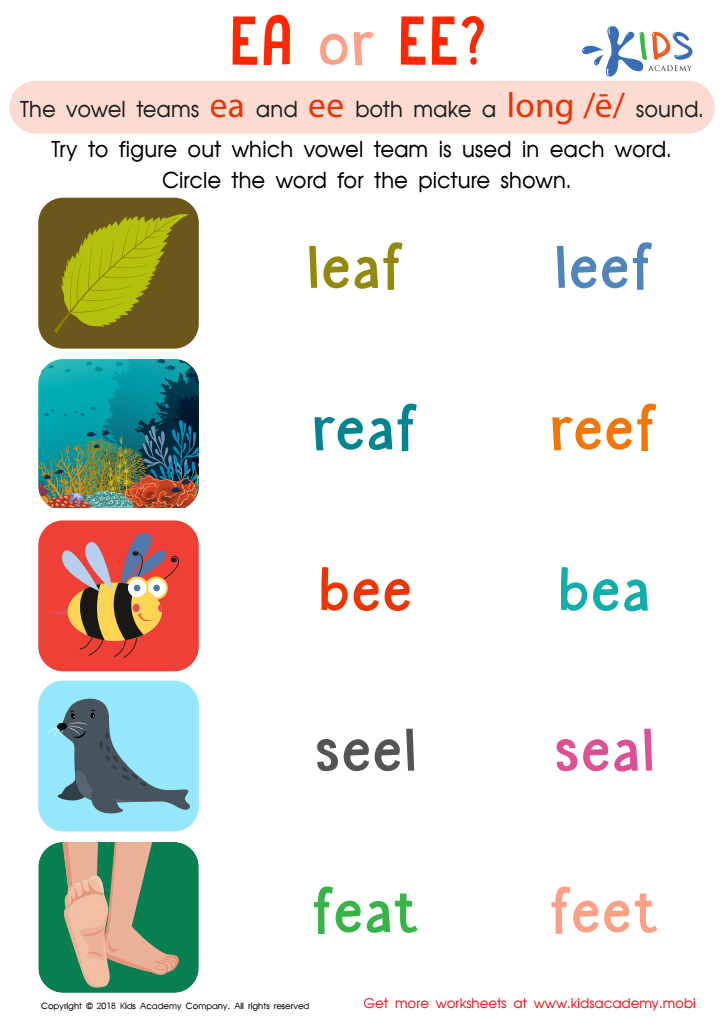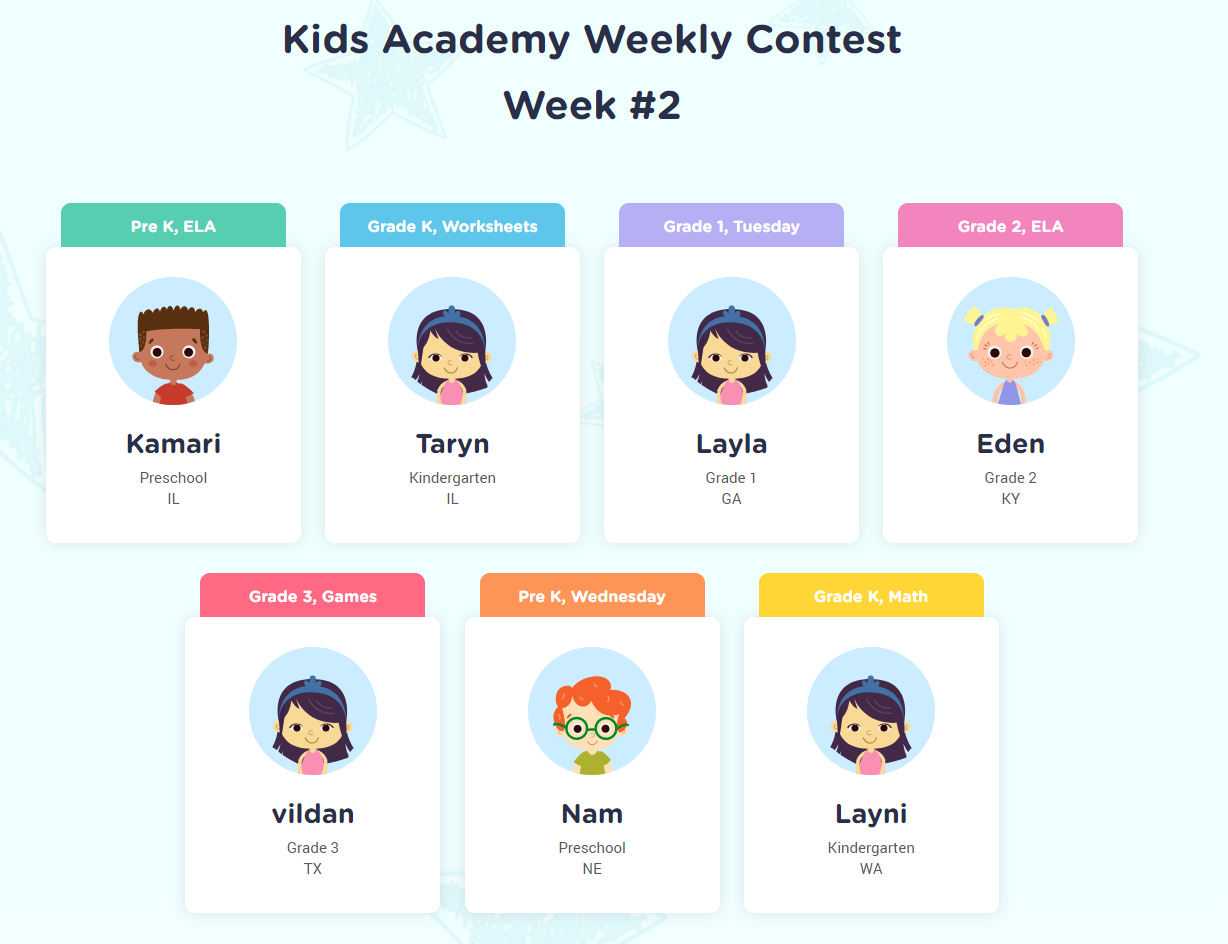Phonics proficiency Worksheets for Kids
2 filtered results
-
From - To


First Words: Picture Rhymes Worksheet


Reading: EA and EE Worksheet
Question/Answer
How does the mastery of the Phonics proficiency skill affect a student's performance at an early age?
Mastery of Phonics proficiency at an early age significantly enhances a student's reading and spelling abilities. It provides them with the foundational skills to decode words, leading to improved reading fluency, comprehension, and vocabulary development. This early mastery sets the stage for academic success, fostering confidence and a positive attitude towards learning.
Why is the Phonics proficiency skill important for Kindergarten students?
Phonics proficiency is crucial for Kindergarten students because it lays the foundation for reading and writing skills. By understanding the relationship between sounds and letters, children can decode words, fostering early literacy. This skill aids in developing reading fluency, comprehension, and the ability to spell, setting the stage for successful learning and communication throughout their educational journey.
How to train the Phonics proficiency skill in Kindergarten students learning about Rhyming?
To train Phonics proficiency in Kindergarten students learning about rhyming, incorporate engaging activities like rhyming bingo, matching games with rhyming words, singing rhyming songs, and reading rhyming books. Use visual aids and phonemic awareness exercises to highlight rhyming sounds. Encourage them to create their rhymes during interactive class sessions to foster creativity and reinforce their understanding of rhyming patterns.
 Assign to the classroom
Assign to the classroom





.jpg)






